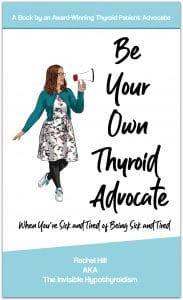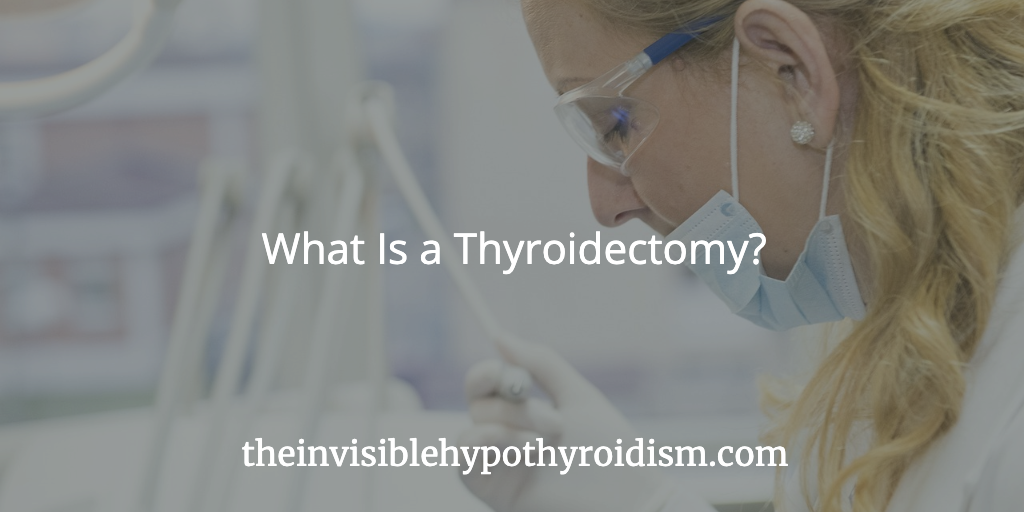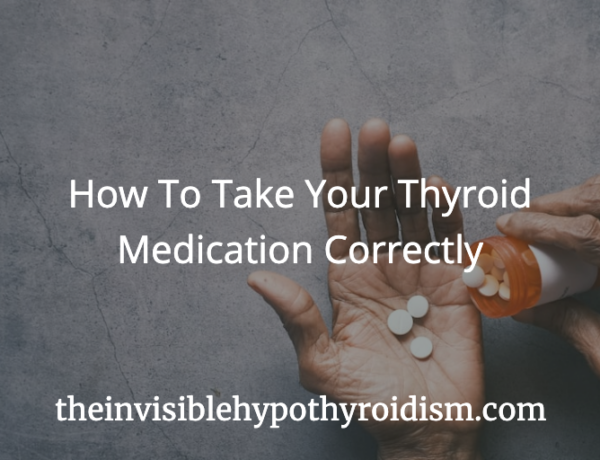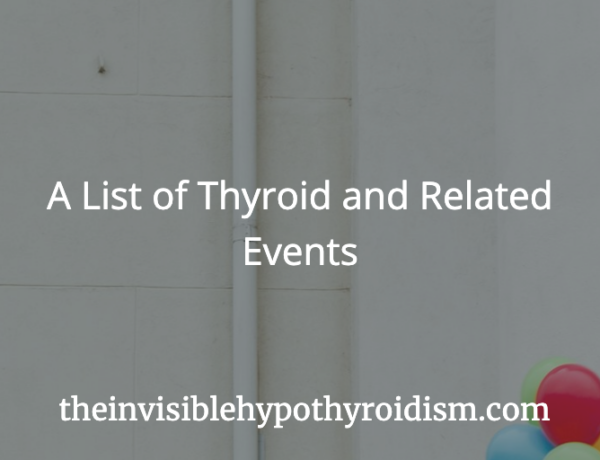Originally published on 3rd April 2018 Last updated on 8th March 2024
Surgery performed on the thyroid gland is known as a thyroidectomy.
This usually involves removing all (a total thyroidectomy) or part (half – a subtotal/partial thyroidectomy or quarter – thyroid lobectomy) of the thyroid.
A thyroidectomy may be performed as treatment for thyroid cancer, when a goitre or nodule is causing problems or as a form of treatment for hyperthyroidism (it could be after trying radioactive iodine therapy and/or antithyroid drugs, with no success).
A total thyroidectomy is most common, and most commonly performed for thyroid cancer or hyperthyroidism.
What is The Surgery Like?
Actual surgery to perform a thyroidectomy typically lasts a few hours at most and is pretty straight forward. You may need to stay a night or two in hospital, however. Thyroid surgery is most commonly performed with general anaesthesia.
If you are having a thyroidectomy performed, check with your surgeon about any medications you are taking, and if you should stop taking any of these before the operation. You’ll also want to ask about eating and drinking prior to it, too.
What Will My Health Be Like After?
A total thyroidectomy results in hypothyroidism, so, understandably, some surgeons prefer to perform a partial thyroidectomy wherever possible, as they may feel that enough thyroid tissue can be left to prevent hypothyroidism and still produce enough thyroid hormones.
However, the chance of developing hypothyroidism after a partial thyroidectomy is still quite high and many people find that having part of their thyroid left just isn’t enough to do the job. Therefore, you may require thyroid hormone replacement medication for life and need regular full thyroid panels to monitor this.
Post surgery, you will be left with a 3-5 inch scar that should become less noticeable over time. Most surgeons use dissolvable stitches, but the non-absorbable stitches can cause less scarring, say some members of my Facebook group.
Before you are discharged, your incision is usually covered with a clear protective waterproof glue, which allows you to bathe or shower after the surgery. This should come off within a week or so, on its own.
You may notice some swelling or bruising around your incision, and this is expected, but excess swelling or bleeding must be reported to a doctor straight away. Any signs of infection must also be reported ASAP.
As expected, you may experience some short-term pain and neck stiffness after surgery; eating and drinking may be difficult or uncomfortable.
You’ll be expected to need one to two weeks to recuperate after the surgery, so expect to book some time off work. You’ll also need to return for a follow-up appointment to talk to your surgeon/doctor about how you’re doing, post-op. Make sure to raise any concerns here, especially about monitoring your thyroid levels going forward.
It’s also worth knowing that adrenal dysfunction seems to affect some people after this surgery, so you may also wish to monitor yourself for signs and symptoms of this. Order or ask for a 24 hour saliva test, testing your cortisol levels at four key points of the day, to find out if you have adrenal issues. If your doctor won’t do this, you can very simply order it yourself and complete it at home. You can find testing options here and here.
Have you had a thyroidectomy? What was your experience like? Feel free to share in the comments below.

The book Be Your Own Thyroid Advocate: When You’re Sick and Tired of Being Sick and Tired, for those who are hypothyroid, whether via a thyroidectomy, autoimmune thyroid disease, cancer, congenital hypothyroidism or something else.
You can click on the hyperlinks in the above post to learn more and see references to information given, but more reading and references can also be found at:
Click to access Discharge-advice-following-thyroidectomy-patient-information.pdf





